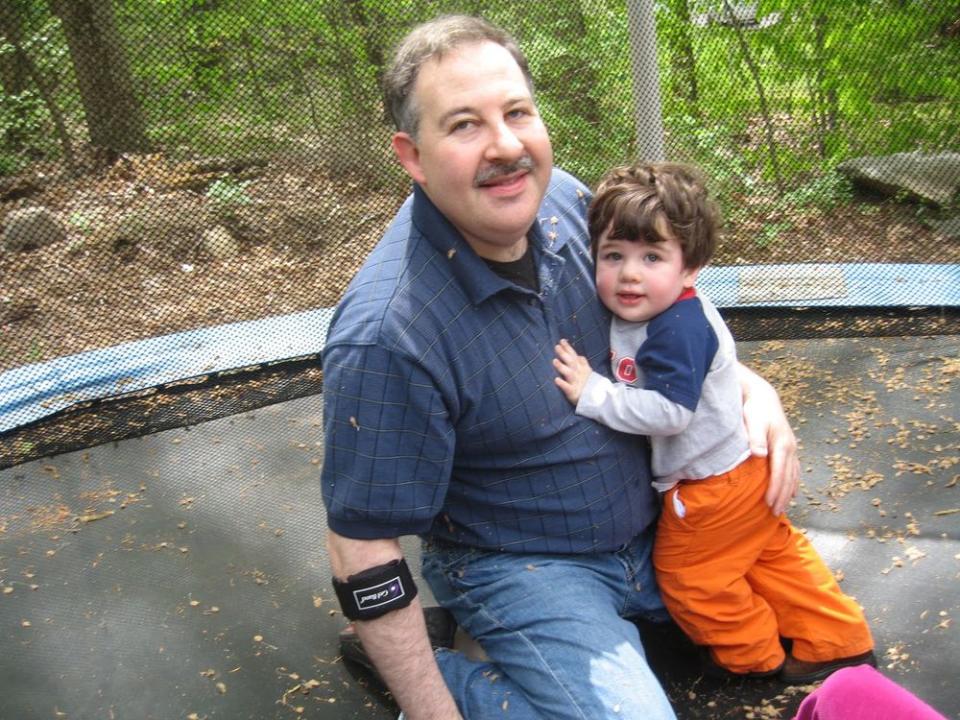How a Victim's Dad Was Inspired to Fight Back Against Sandy Hook Conspiracy Theories
Lenny Pozner’s darkest day was Dec. 14, 2012, when his 6-year-old son, Noah, was one of 20 children slaughtered in the Sandy Hook Elementary School massacre in Newtown, Connecticut.
In the aftermath of the shooting, Pozner became a target himself.
Within days, and despite all of the evidence to the contrary, conspiracy theories began to swirl about the attack — speculating that the shooting was a hoax or some kind of cover for something even more sinister.
“Some of the people who’ve been given a voice with the web are hateful people. … But globally, they’re a large group,” Pozner tells PEOPLE, “and they think that they are in the right for what they’re doing, and they love to publicly shame people who are connected to a tragedy.”
Eventually, Pozner could no longer abide such baseless, “abusive” speculation.
“I started to have some of that content removed through online posting platforms — communicating to [the companies], and requesting it, and reporting content — and that grew into connecting with volunteers that were helping me and that cause,” he says. “And it’s turned into a lot of work.”
In 2014, Pozner founded the Honr Network to combat such behavior online. Or, as the group’s website describes it: “No one should have to endure … hateful treatment at the hands of fellow members of society, especially after suffering profound loss to an unspeakable act of violence.”
This is where Pozner comes in with his group — including hundreds of volunteers over the years, he says — making concerted efforts to take down digital content that they say targets grieving survivors and families.
• For more about the Sandy Hook anniversary, subscribe now to PEOPLE or pick up this week’s issue, on newsstands Friday.
Among those who Pozner has helped is the family of Alison Parker, a TV reporter in Virginia who was killed in 2015 during her morning broadcast by a former employee of her news station.
“There’s a very real need for the work that we’re doing, and I understand some of it. I was in IT before the shooting, so I understand the web,” Pozner tells PEOPLE. “It’s changed, developed a lot obviously because of the mob-type of hate, but I understand that aspect of it.”

Fighting back against online “hoaxers,” as Pozner calls them, is not without its backlash.
Unfortunately, Pozner says, the internet has enabled a kind of collective hatefulness that attaches itself to tragedy.
“If you find yourself being connected to a mass casualty even, such as a mass shooting, not only are you a victim of it by surviving it or having lost a child or a family member, you’ve also lost your privacy and there’s an abusive side to it,” he says.
“A lot of people just steer clear of it because it’s that unpleasant, but it comes with it,” Pozner adds. “So a lot of people shield themselves from it, and we do the opposite. We attempt to repel it, to minimize it, to reduce it.
Five years after Noah was killed in his first-grade classroom, Pozner says his anti-hoax efforts have “been occupying most of my time as a way to protect my son’s legacy.” (He and his two daughters, including Noah’s twin sister, relocated to Florida after the shooting.)
The anniversary may be “a focal point for people to draw their awareness to the shooting and the victims,” he says.
But “for me, every day is like that.”

